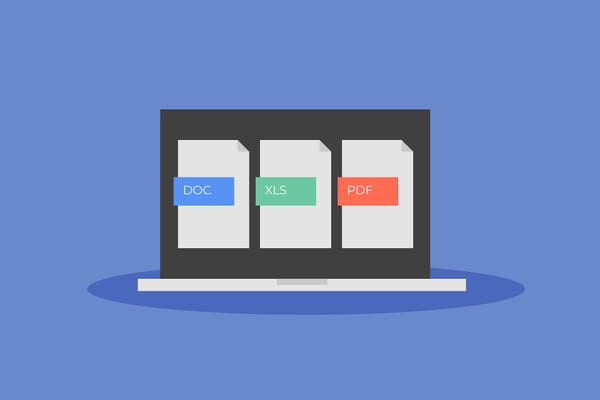The Unique Cybersecurity Threats and Challenges Faced by Consulting Firms

Consulting firms play a crucial role in advising clients across a vast range of industries. From management consulting to IT services, these firms, typically small, handle troves of sensitive client data, making them prime targets for cybercriminals.
The very nature of consulting – advising multiple organizations across sectors – weaves an intricate web of digital risks. In this article, we explore the unique cybersecurity challenges that consulting firms face and discuss how different types of consulting practices are exposed to specific threats – and how they can combat them.
1. Management Consulting: Handling Sensitive Client Information

Management consulting firms frequently work with organizations on high-level strategies, often accessing business-critical information such as financials, operational structures, and growth plans. Cybersecurity challenges in this field include:
- Data Breaches: Consulting firms store and exchange highly sensitive client data. A breach could expose confidential corporate strategies or financial information, damaging the reputations of both the consulting practice and its clients.
- Third-Party Risk: Since management consultants often work with multiple vendors and third-party services, the risk of supply chain attacks is high. Attackers may exploit vulnerabilities in external partners to gain access to the systems of the firm or its clients. A resounding example of such an even is last year’s MOVEit incident, where CL0P ransomware operators extorted hundreds of companies after breaching this single vendor in what became one of the biggest supply-chain incidents in history.
- Social Engineering: Consultants frequently interact with top-level executives and decision-makers. This exposes them to spear-phishing attackers who impersonate these individuals to gain unauthorized access to sensitive information.
2. IT Consulting: Technical Expertise and Technical Vulnerabilities

IT consulting firms help clients implement new technology systems, improve cybersecurity, and manage data infrastructure. Ironically, the very expertise they provide can make them a high-profile target for cybercriminals.
- Advanced Persistent Threats (APTs): IT consultants are often targeted by sophisticated threat actors who deploy APTs. These threats are designed to infiltrate networks stealthily, gather intelligence, and maintain long-term access, putting consultants' clients at serious risk.
- Insider Threats: IT consultants often work closely with their clients' internal IT teams and have privileged access to systems. Malicious insiders or disgruntled employees could exploit this access to compromise security.
- Vulnerability Management: IT consultants help patch and secure clients’ systems, but they themselves can become targets if they use outdated software or fail to patch vulnerabilities in their own systems. Additionally, the tools and software provided by consultants may become vectors for attacks if not secured properly.
3. Financial Consulting: A High-Stakes Game of Data Protection

Financial consulting firms deal with a wealth of sensitive data, including investment strategies, personal financial details, and merger & acquisition plans. The cybersecurity risks in this sector are heightened due to the value of financial information.
- Ransomware: Cybercriminals frequently target financial consultants with ransomware due to the valuable nature of financial data. These attacks can lock up critical information, demanding huge sums for decryption and posing a severe threat to business continuity.
- Data Manipulation: Rather than just stealing financial data, attackers may alter financial records to mislead consultants and their clients, affecting decisions in stock trading, mergers, or corporate valuations.
- Regulatory Compliance: Financial consultants must also adhere to strict regulations such as GDPR, SOX, and other financial data protection laws. Failing to implement the necessary cybersecurity measures can lead to non-compliance, triggering significant legal and financial penalties.
4. HR and Recruitment Consulting: A Treasure Trove of Personal Information

HR and recruitment consultants handle large amounts of personal and employment-related data. This data includes everything from Social Security Numbers and employment history to salary details, which makes them an attractive target.
- Identity Theft and Fraud: Hackers value the personal identifiable information (PII) collected during recruitment. Once obtained, the data can be sold at a handsome profit on the dark web for identity theft and fraud.
- Phishing Attacks: HR consultants are often targeted with phishing campaigns promoting job applications or CV attachments containing malicious links or files. This can lead to malware infection.
- Data Privacy and Consent: Consultants in this space must ensure that they collect and store data in line with privacy regulations like GDPR. A breach or failure to secure candidate data could lead to lawsuits and loss of trust among both clients and candidates.
5. Environmental and Sustainability Consulting: Navigating Operational Security

Environmental and sustainability consultants work on projects related to green energy, corporate social responsibility, and environmental compliance. As these fields often intersect with public infrastructure, cybersecurity challenges here can differ from traditional consulting firms.
- Critical Infrastructure Attacks: Many sustainability projects deal with energy, water management, or urban infrastructure, which are targets for nation-state attackers. Breaches can result in disruptions to critical systems or access to sensitive industrial data.
- IoT Vulnerabilities: Sustainability consultants often work with IoT devices and smart technologies to optimize energy use or reduce emissions. These connected devices are notoriously vulnerable to cyberattacks, giving cybercriminals new entry points into industrial systems.
- Data Integrity: Sustainability reporting involves vast amounts of data. Cybercriminals may attempt to manipulate this data, compromising the accuracy of reports that inform decision-making at a governmental or corporate level.
Conclusion
As consulting firms expand their digital footprint and engage with sensitive data across industries, the cybersecurity landscape grows increasingly complex. Whether it’s the financial sector, HR, or IT consulting, each branch faces distinct threats that require tailored security strategies. A proactive approach to cybersecurity, including employee training, robust data protection measures, and continuous monitoring, is essential to protect not only the consulting firm but also its clients. Firms that invest in strong cybersecurity frameworks will safeguard their reputation and enhance client trust.
One effective way for consulting firms to stay ahead of these evolving threats is through Bitdefender Ultimate Small Business Security – an extended version of our consumer-friendly security suite that covers every attack scenario, protecting your consultancy’s precious assets before the bad guys set foot in your network.
Key features include:
· Phishing and Email Protection: Shields against phishing attacks and fraudulent emails
· Malware Protection: Protects Windows PCs, Macs, iPhones, Android phones and Windows servers from malware, including ransomware and other malicious software
· Password Manager: Ensures strong password policies and secure storage of login credentials
· VPN: Unlimited VPN traffic for secure remote access
Offering advanced threat defense, ransomware mitigation, and multi-layered protection, Bitdefender provides the comprehensive security consulting firms need to protect sensitive client data, ensure compliance, and maintain operational continuity.
Best of all, it can be administered even by non-techies in your company – no IT skillset required. Visit bitdefender.com/solutions/small-business-security to see our solution in action.
tags
Author
Filip has 15 years of experience in technology journalism. In recent years, he has turned his focus to cybersecurity in his role as Information Security Analyst at Bitdefender.
View all postsRight now Top posts
How to Protect Your WhatsApp from Hackers and Scammers – 8 Key Settings and Best Practices
April 03, 2025
Outpacing Cyberthreats: Bitdefender Together with Scuderia Ferrari HP in 2025
March 12, 2025
Streamjacking Scams On YouTube Leverage CS2 Pro Player Championships to Defraud Gamers
February 20, 2025
How to Identify and Protect Yourself from Gaming Laptop Scams
February 11, 2025
FOLLOW US ON SOCIAL MEDIA
You might also like
Bookmarks







